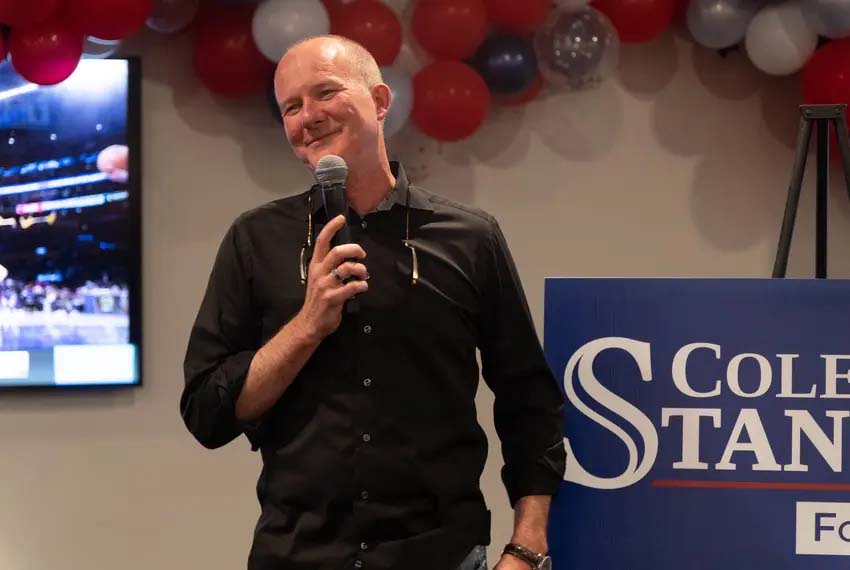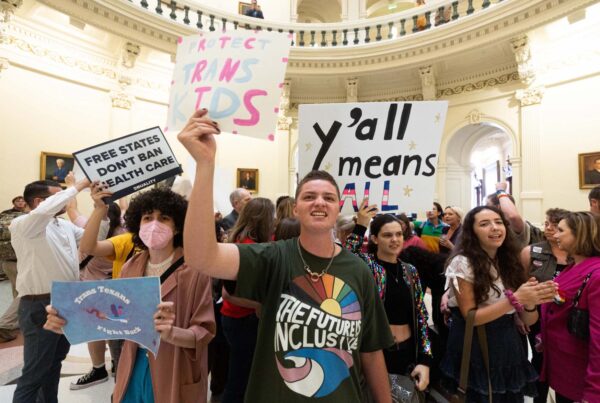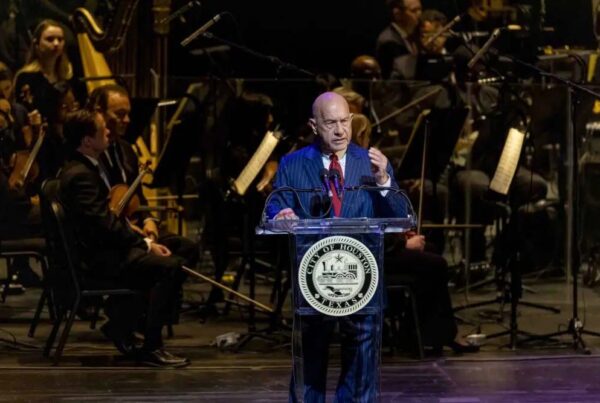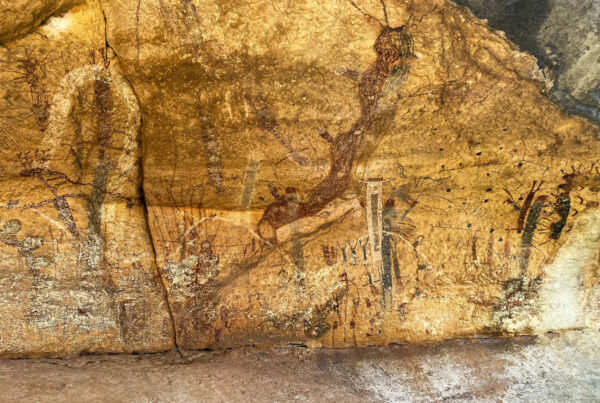From The Texas Tribune:
Ever since West Texas A&M University President Walter Wendler started developing a new institute on campus to champion “Panhandle values,” he has publicly steered away from any political labels. Wendler even asked employees not to use the word “conservative” when describing the upcoming Hill Institute.
Alex Fairly, the wealthy donor who, along with his wife Cheryl, gave the university $20 million for the project, insists it will not be political.
“There’s no plan to sneak something in deceptively, to try to pull something off that we’re really not saying,” Fairly said in an interview with The Texas Tribune. “If people are thinking that, they’re just off base.”
But emails obtained by the Tribune through public records requests show Wendler has tapped influential conservatives across the state for feedback and advice on the project.
The documents suggest that Wendler hopes the institute will have a broader impact across the university and for it to play a key role in advancing the type of higher education reform conservative leaders have been pushing for in recent years.
“It is a challenge on a public university campus to espouse the values that The Hill Institute intends to champion,” Wendler wrote in an email last January to the executive director of the Texas Public Policy Foundation, an influential conservative think tank in Austin. “As you might imagine, some faculty are not supportive of the initiative, but we believe it is sound intellectually as does the [Texas A&M University System] Board of Regents. And it aligns with the kinds of things our region supports.”
The new center was launched to promote 10 values that Wendler and Fairly believe encapsulate the region: trust; family life; hard work and persistence; regard for others; personal responsibility and free will; compatriotism and patriotism; exercise of virtue; the free and open exercise of faith; personal and civic loyalty; and rugged individualism.
Early plans state the university will use Fairly’s donation to endow faculty across campus to study those values, provide scholarships to students who exemplify them and host speakers and lecturers on campus who conduct work related to them, with many details to be determined.
When professors pressed Wendler for more information during a fall faculty meeting, he emphasized the institute plans are still a “working draft,” and often responded that he wasn’t sure of the answer to their questions, according to an audio recording of the meeting obtained by the Tribune.
When asked to define “strong moral and social order” as used in the Hill Institute documents, Wendler said he couldn’t do it.
“What I would like to do is gather scholars from a wide range of disciplines, and distant places, as well as here, to get them to talk about [that],” he said.
Emails reveal the larger web of politically conservative groups and individuals that Wendler contacted to help shape the center.
Last January, Wendler shared a draft of the proposal with TPPF Executive Director J.B. Horton, who was enthusiastic.
“Based on numerous donor discussions I’ve had over the past few years, there is extreme concern with the direction of our universities around the country,” Horton wrote. “I am confident you will find many supporters who will be eager to support this.”
He gathered a few other TPPF executives and flew with them to Amarillo last year to brainstorm about the project with Wendler and Fairly.
“WE ALL applaud your efforts for this desperately needed island of hope and sanity in our world today, especially on college campuses!” Horton wrote to Wendler after the meeting.
Emails show that Horton also connected Wendler with Carlos Carvalho, a University of Texas at Austin professor who wrote the initial proposal for a conservative think tank at UT-Austin, originally known as the Liberty Institute. According to early documents, the center was to be dedicated to the “study and teaching of individual liberty, limited government, private enterprise and free markets.” In 2021, state lawmakers allocated $6 million for the project. Later, Carvalho claimed that UT-Austin leaders walked back the concept after faculty accused the university of allowing state lawmakers to “politicize” the campus.
Wendler told the TPPF in emails that the Hill Institute would be “similar in some ways” to the original Liberty Institute project. Last February, when Wendler sent Carvalho a copy of a draft for the Hill Institute, he described the center as “intended to stimulate thought about traditional conservative value[s].” Carvalho did not respond to a request for comment.
Horton also tried to connect Wendler with Texas oil tycoon Bud Brigham, who was one of the main donors who tried to launch the Liberty Institute at UT-Austin. Brigham has donated to Republican political candidates and is known as a fervent promoter of the writer Ayn Rand, an inspiration for many libertarians and conservatives. Horton told the Tribune that Brigham has yet to get involved with the Hill Institute. Brigham did not respond to a request for comment.
Documents provided via open record requests also reveal the individuals that administrators considered as potential advisory board members for the institute are mostly Republican and conservative leaders. One list includes the names of some local donors and former Texas higher education leaders, but also politicians such as former Texas Gov. Rick Perry and U.S. Reps. Ronny Jackson and Kay Granger. It also suggested the board include a TPPF member, billionaire GOP megadonor Charles Koch and conservative scholar Stephen Moore, a distinguished fellow at the conservative Heritage Foundation.
Emails show Wendler communicated with Moore in November to plan a trip for him and Fairly to visit the Washington, D.C.-based think tank and discuss the direction of the Hill Institute.
“I think your help will be invaluable to us on this initiative,” Wendler wrote to Moore. Moore confirmed to the Tribune in an email that he has discussed the program with Wendler and is very excited.
“Love the center’s goals about bringing economic development to rural areas and spreading wholesome rural values,” Moore wrote in an email to the Tribune.
Emails also show Wendler is interested in a potential partnership between the Hill Institute and the American Heritage Education Foundation. The Houston-based education group describes itself on its website as “dedicated to the research and teaching of America’s factual and philosophical heritage — including the Bible-inspired principles that shaped America’s founding.”
Its co-founder, Jack Kamrath, said in an email to Wendler that he looped in conservative academic Stephen Balch, who founded Texas Tech University’s Institute for the Study of Western Civilization and the National Association of Scholars, a politically conservative education advocacy nonprofit, to discuss the institute. In blog posts, Balch falsely described President Joe Biden’s 2020 election victory as a “literal coup.”
It’s unclear if the meeting occurred. When reached by phone, Kamrath said there had been some discussions but declined to provide details and directed questions to the university. West Texas A&M officials did not immediately respond to questions about whether they met. Balch did not respond to a request for comment.
Fairly’s political connections and donations also give some faculty members pause about his intentions for the center he’s primarily funding.
Last year, Fairly donated more than $220,000 to Defend Texas Liberty, a powerful political action committee funded by two West Texas billionaires that’s been under fire since the Tribune revealed its ties to prominent Adolf Hitler admirer Nick Fuentes and other known white supremacists. The PAC was a vocal supporter of Attorney General Ken Paxton after he was impeached by the Texas House last spring.
Fairly said he was the one who helped bring Lt. Gov. Dan Patrick to the Hill Institute announcement last fall.
“I also didn’t know anybody that I thought believed in these values … just clear-headed as I think he does,” Fairly said in an interview.
Fairly is also a supporter of TPPF, which he described in an email as “unquestionably the most impactful (meaning, they get things done) conservative Think Tank in Texas.”
“Cheryl and I have been so encouraged by how aligned we are with their faith-based, conservative values and utterly inspired by their bold, but civil approach to defending values we believe in,” he wrote in an email inviting Wendler and others to his home for a dinner to get to know TPPF members.
He described Wendler in similar terms last August when the Fairly’s officially agreed to give the massive donation for the Hill Institute.
“Thank you … especially for Walter’s work in creating what we believe is a project that will promote and defend the values we believe are worth fighting for, and defending,” he wrote in an email.
While Fairly said he will not be involved in day-to-day operations of the center, a copy of the signed donation agreement between West Texas A&M and the family gives them the power to recall the donation if they determine “the Hill Institute no longer aligns with the principles and purposes intended in the foundation documents.” Emails show Cheryl Fairly was concerned a future president could dismantle the center if they disagreed with its mission.
Todd Rasberry, the university’s vice president for philanthropy and external affairs, tried to assuage her fears. He wrote back that once the institute gains momentum, it’ll be harder to stop.
“When more people (faculty and students and influential private citizens) [are] involved in the Institute, the more ‘fear’ the next President of WT will have about messing with the Institute’s purpose and mission,” he said.
The Texas Tribune partners with Open Campus on higher education coverage.
Disclosure: Texas A&M University, Texas Public Policy Foundation, Texas Tech University, University of Texas at Austin and West Texas A&M University have been financial supporters of The Texas Tribune, a nonprofit, nonpartisan news organization that is funded in part by donations from members, foundations and corporate sponsors. Financial supporters play no role in the Tribune’s journalism. Find a complete list of them here.














